Abarth 500 595 695 vs Maxus Deliver 9 - Differences and prices compared
Compare performance (155 HP vs 204 HP), boot space and price (32600 £ vs 38700 £ ) at a glance. Find out which car is the better choice for you – Abarth 500 595 695 or Maxus Deliver 9?
Costs and Efficiency:
Looking at overall running costs, both models reveal some interesting differences in everyday economy.
Abarth 500 595 695 has a slightly advantage in terms of price – it starts at 32600 £ , while the Maxus Deliver 9 costs 38700 £ . That’s a price difference of around 6187 £.
In terms of energy consumption, the advantage goes to the Abarth 500 595 695: with 17.10 kWh per 100 km, it’s decisively more efficient than the Maxus Deliver 9 with 26.20 kWh. That’s a difference of about 9.10 kWh.
As for electric range, the Maxus Deliver 9 performs evident better – achieving up to 358 km, about 93 km more than the Abarth 500 595 695.
Engine and Performance:
Power, torque and acceleration are the classic benchmarks for car enthusiasts – and here, some clear differences start to show.
When it comes to engine power, the Maxus Deliver 9 has a distinct edge – offering 204 HP compared to 155 HP. That’s roughly 49 HP more horsepower.
In acceleration from 0 to 100 km/h, the Abarth 500 595 695 is clearly quicker – completing the sprint in 7 s, while the Maxus Deliver 9 takes 16 s. That’s about 9 s faster.
In terms of top speed, the Maxus Deliver 9 performs hardly perceptible better – reaching 160 km/h, while the Abarth 500 595 695 tops out at 155 km/h. The difference is around 5 km/h.
There’s also a difference in torque: Maxus Deliver 9 pulls clearly perceptible stronger with 375 Nm compared to 235 Nm. That’s about 140 Nm difference.
Space and Everyday Use:
Whether family car or daily driver – which one offers more room, flexibility and comfort?
Seats: Maxus Deliver 9 offers convincingly more seating capacity – 7 vs 4.
In curb weight, Abarth 500 595 695 is decisively lighter – 1410 kg compared to 2360 kg. The difference is around 950 kg.
In maximum load capacity, the Maxus Deliver 9 performs convincingly better – up to 12500 L, which is about 11950 L more than the Abarth 500 595 695.
When it comes to payload, Maxus Deliver 9 convincingly takes the win – 1140 kg compared to 385 kg. That’s a difference of about 755 kg.
Who wins the race?
The Maxus Deliver 9 proves to be wins solidly and therefore becomes our DriveDuel Champion!
Maxus Deliver 9 is the better all-rounder in this comparison.

Maxus Deliver 9
Costs and Consumption
View detailed analysis
Engine and Performance
View detailed analysis
Dimensions and Body
View detailed analysis
Abarth 500 595 695
The Abarth 500, particularly in its 595 and 695 renditions, captures the spirit of Italian motoring with its compact yet aggressive design. Known for its lively performance and distinctive styling, this little powerhouse is a joy to drive, offering an engaging experience that appeals to enthusiasts. With its rich motorsport heritage, the Abarth 500 embodies the essence of fun and excitement on both the streets and the race track.
details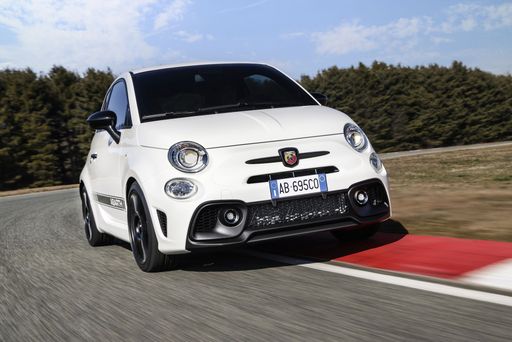
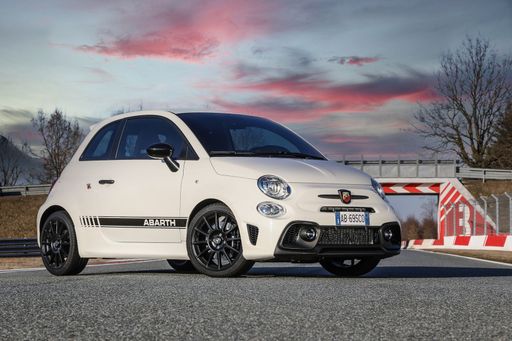
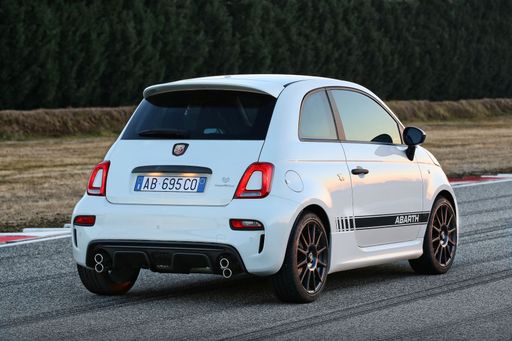
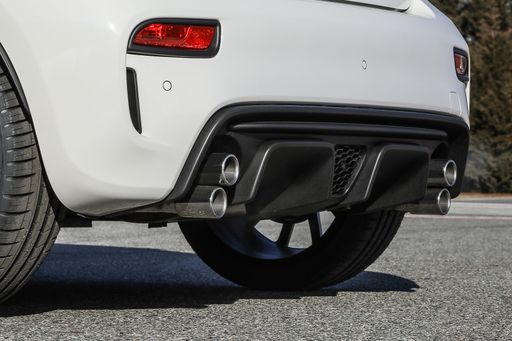
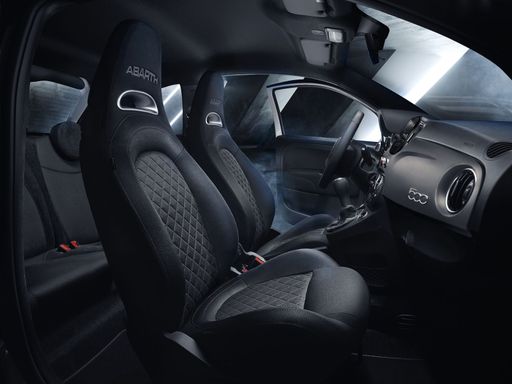
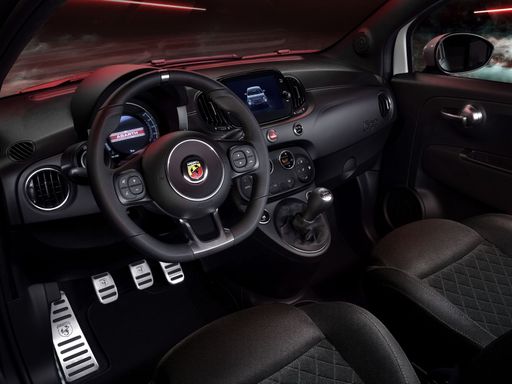
Maxus Deliver 9
The Maxus Deliver 9 is a no-nonsense cargo hauler that pairs clever practicality with a surprisingly car-like driving feel, making it a smart choice for urban fleets and weekend DIY warriors. It may not stop traffic for looks, but its roomy, sensible interior and dependable demeanour mean you get work done without the drama.
detailsCosts and Consumption |
|
|---|---|
|
Price
32600 - 39400 £
|
Price
38700 - 60200 £
|
|
Consumption L/100km
-
|
Consumption L/100km
8.80 L
|
|
Consumption kWh/100km
17.1 - 18.8 kWh
|
Consumption kWh/100km
26.2 - 30.8 kWh
|
|
Electric Range
242 - 265 km
|
Electric Range
287 - 358 km
|
|
Battery Capacity
37.80 kWh
|
Battery Capacity
-
|
|
co2
0 g/km
|
co2
0 - 231 g/km
|
|
Fuel tank capacity
-
|
Fuel tank capacity
-
|
Dimensions and Body |
|
|---|---|
|
Body Type
Hatchback
|
Body Type
Cargo Van
|
|
Seats
4
|
Seats
3 - 7
|
|
Doors
3
|
Doors
4
|
|
Curb weight
1410 - 1435 kg
|
Curb weight
2360 - 2770 kg
|
|
Trunk capacity
185 L
|
Trunk capacity
-
|
|
Length
3673 mm
|
Length
5546 - 5940 mm
|
|
Width
1682 mm
|
Width
2062 mm
|
|
Height
1518 mm
|
Height
2525 - 2755 mm
|
|
Max trunk capacity
550 L
|
Max trunk capacity
7100 - 12500 L
|
|
Payload
370 - 385 kg
|
Payload
730 - 1140 kg
|
Engine and Performance |
|
|---|---|
|
Engine Type
Electric
|
Engine Type
Diesel, Electric
|
|
Transmission
Automatic
|
Transmission
Manuel, Automatic
|
|
Transmission Detail
Reduction Gearbox
|
Transmission Detail
Manual Gearbox, Reduction Gearbox
|
|
Drive Type
Front-Wheel Drive
|
Drive Type
Front-Wheel Drive
|
|
Power HP
155 HP
|
Power HP
148 - 204 HP
|
|
Acceleration 0-100km/h
7 s
|
Acceleration 0-100km/h
16 - 19 s
|
|
Max Speed
155 km/h
|
Max Speed
100 - 160 km/h
|
|
Torque
235 Nm
|
Torque
330 - 375 Nm
|
|
Number of Cylinders
-
|
Number of Cylinders
4
|
|
Power kW
114 kW
|
Power kW
108 - 150 kW
|
|
Engine capacity
-
|
Engine capacity
1996 cm3
|
General |
|
|---|---|
|
Model Year
2023
|
Model Year
2022 - 2024
|
|
CO2 Efficiency Class
A
|
CO2 Efficiency Class
G, A
|
|
Brand
Abarth
|
Brand
Maxus
|
Is the Abarth 500 595 695 offered with different drivetrains?
The Abarth 500 595 695 is offered with Front-Wheel Drive.




